Antoine Roex, Stalks
At a time when companies increasingly rely on data to guide their decisions, a crucial question arises: how can we quantify soft skills without distorting the human element? This article explores methods for assessing behavioral competencies and the ethical challenges that come with them.
Soft skills: essential human competencies
Soft skills, often referred to as interpersonal or behavioral competencies, encompass everything related to emotional intelligence: empathy, leadership, stress management, the ability to collaborate or solve complex problems. They are not acquired in the same way as hard skills, which are more technical and structured. Their development is often the result of personal experiences, emotional maturity, and professional growth. Recruiters are placing growing importance on them because they foster team cohesion, adaptability in times of change, and the ability to navigate uncertainty. They are also seen as powerful levers for innovation and differentiation, both individually and organizationally. In a world where jobs are evolving rapidly, soft skills are becoming the foundation for building a sustainable career. They enable individuals to adapt continuously, manage cross-functional projects, and create a healthy work environment. The most successful companies no longer rely solely on degrees or technical expertise but seek profiles that demonstrate resilience, communication skills, and transversal leadership.
The challenges of their assessment
Measuring soft skills remains a complex challenge because they are inherently subjective, contextual, and often invisible. Unlike a degree or technical certification, there is no universal scale to quantify qualities such as curiosity, critical thinking, or kindness. The tools currently used are varied, ranging from psychometric questionnaires to behavioral interviews and ongoing feedback analysis. However, even with these tools, results can be influenced by cultural, cognitive, or emotional biases. For example, an introverted employee may be underrated in leadership, even though they demonstrate it subtly and effectively. One must also consider the diversity of professional environments: the same behavior may be valued in one context and poorly perceived in another. Moreover, soft skills evolve over time, shaped by experiences and situations, making their assessment even more delicate. It is therefore essential to adopt a continuous observation approach, combined with multidimensional methods, rather than relying on a single test. This also implies training managers to detect and value these skills fairly and without judgment.
Using data to assess soft skills
Technological advances now make it possible to use data to better understand behavioral dynamics within organizations. Tools based on AI, conversational analysis, or biometric sensors offer ways to identify indicators linked to soft skills: tone of voice, speech rhythm, eye contact, or frequency of collaborative interactions. Some HR platforms even analyze written communication to detect subtle signals of active listening, assertiveness, or emotional regulation. However, these technologies are not neutral. They raise deep questions: can we objectify intuition or sensitivity? Can empathy be deduced from a data stream? There is a real risk of reductionism, where human complexity is reduced to a set of metrics without depth. In addition, the transparency of the algorithms used is often lacking, undermining employee trust in these tools. The quality and interpretation of the data collected are also critical: taken out of context, a behavior may be misread. The challenge is not to replace humans with data, but to use data as a decision support tool, in a complementary approach that balances technological assessment with human discernment.
Toward ethical and human-centered evaluation of soft skills
To balance performance, respect for individuals, and the need for reliability, it is essential to establish an ethical framework for evaluating soft skills. This includes transparency in the methods used, informed consent from employees, and the active involvement of those being assessed. Rather than imposing top-down assessment grids, companies should co-create soft skills frameworks tailored to their culture, roles, and goals. Evaluation should not be perceived as control, but as a development opportunity. That’s why human support remains essential: managers trained in emotional intelligence, internal coaches, mentoring programs, and regular feedback all contribute to recognizing these skills with care. Moreover, evaluation should be dynamic, part of an ongoing development journey, not fixed in time. Data can help objectify certain signals, but it should never replace human judgment and context. The goal is to build learning environments where soft skills are not only measured but cultivated over time.
Conclusion
Quantifying soft skills without betraying their human nature is a delicate balance to strike. While technology opens up new possibilities, it cannot fully capture the richness of behavioral competencies. It is imperative to adopt a responsible and human-centered approach, combining data objectivity, collective intelligence, and respect for individuality. By investing in a culture of feedback, continuous learning, and trust, companies can make soft skills a strategic lever—without ever losing sight of what truly matters: it is within human complexity that innovation, resilience, and sustainable performance are born.
References :
- Évaluer les Soft Skills en Entreprise : Quelle Stratégie ?
- L’évaluation par compétences comportementales
- Les 10 soft skills indispensables pour réussir dans la Data
- L’évaluation des soft skills, le guide pour un recrutement réussi
- Mesurer l’impact des soft skills : 9 indicateurs incontournables
- Les 15 soft skills à maîtriser en entreprise



